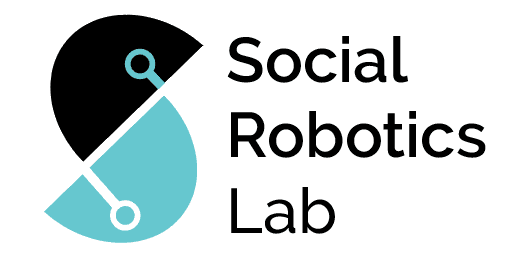June 2023
We conducted an Active Reading workshop for primary school children, aiming to enhance their learning experience through engaging activities. The core idea of active reading was to encourage children to better grasp the story by integrating manual and motor activities, such as crafting or dancing, in between different parts of the narrative.
During the second iteration of the Active Reading workshop, [number] primary school children aged 7-12 years had the wonderful opportunity to enjoy the NAO robot reading the story aloud, alongside a human facilitator. The children actively interacted with the robot, asking questions, witnessing its delightful tricks, and immersing themselves in crafting and motor activities.
The workshop provided a dynamic and enriching experience, stimulating the children's imagination and fostering their interest in both reading and robotics.
Papers based on data from this workshop:
A. Wróbel, K. Źróbek, M-M. Schaper, P. Zguda, and B. Indurkhya (2023) Age-Appropriate Robot Design: In-The-Wild Child-Robot Interaction Studies of Perseverance Styles and Robot’s Unexpected Behavior,. To appear in Proceedings of The IEEE International Conference on Robot & Human Interactive Communication (Ro-Man 2023), Aug. 28-31, Busan, S. Korea.
Our inaugural Active Reading workshop took place at the MOCAK Museum of Contemporary Art in Kraków. The main concept behind active reading is to enhance children's comprehension of the story by integrating manual and motor activities, such as crafting or dancing, in between its parts.
In this first iteration of the workshop, we engaged [number] children, aged 6-12 years old, who were captivated as the NAO robot read the story aloud alongside a human facilitator. Throughout the session, children interacted with the robot, asking questions, observing its playful tricks, and enjoying crafting and motor activities, including charades and drawing.
Papers based on data from this workshop:
A. Wróbel, K. Źróbek, M-M. Schaper, P. Zguda, and B. Indurkhya (2023) Age-Appropriate Robot Design: In-The-Wild Child-Robot Interaction Studies of Perseverance Styles and Robot’s Unexpected Behavior,. To appear in Proceedings of The IEEE International Conference on Robot & Human Interactive Communication (Ro-Man 2023), Aug. 28-31, Busan, S. Korea.
Wróbel, A., Źróbek, K., Indurkhya, B., Schaper, M. M., Gunia, A., & Zguda, P. M. (2023, April). Are robots vegan? Unexpected behaviours in child-robot interactions and their design implications. In Extended Abstracts of the 2023 CHI Conference on Human Factors in Computing Systems (pp. 1-7).
April 2022
This workshop marked the first research activity of the Social Robotics Lab in Kraków, Poland. The primary objective was to observe interactions between preschool children and a robot in a natural environment, specifically within a classroom setting, while studying the effectiveness of in-the-wild methodologies in Child-Robot Interaction (CRI).
During the workshop, 105 children aged 4-7 years had the opportunity to engage with the robot Pepper. Various verbal and motor activities, including storytelling and dancing, were incorporated into the sessions, allowing the children to interact and play with the robot.
Papers based on data from this workshop:
Zguda, P., Kołota, A., Venture, G., Sniezynski, B., & Indurkhya, B. (2021). Exploring the role of trust and expectations in CRI using in-the-wild studies. Electronics, 10(3), 347.
January 2017
This workshop marked the first research activity of the Social Robotics Lab in Tokyo, Japan. The primary objective was to observe interactions between preschool children and a robot in a natural environment, specifically within a classroom setting, while studying the effectiveness of in-the-wild methodologies in Child-Robot Interaction (CRI).
During the workshop, 39 children aged 4-6 years had the opportunity to engage with the robot Pepper. Various verbal and motor activities, including storytelling and dancing, were incorporated into the sessions, allowing the children to interact and play with the robot.
Papers based on data from this workshop:
Zguda, P., Kołota, A., Venture, G., Sniezynski, B., & Indurkhya, B. (2021). Exploring the role of trust and expectations in CRI using in-the-wild studies. Electronics, 10(3), 347.










